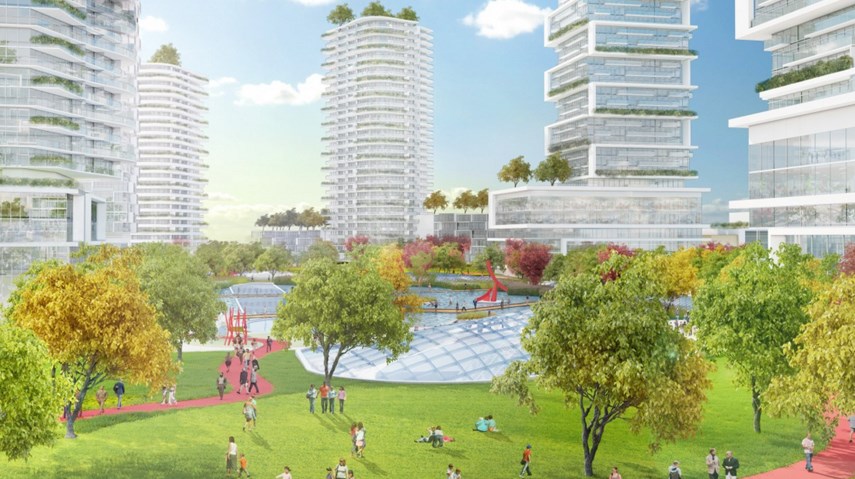Canada’s commercial real estate markets in major cities like Vancouver are off to an active start in 2017, with record sales and acquisitions in the retail market and increased supply in the office arena.
With office vacancy rates in Canada defying trends globally and new retail stats and sales ramping up consumer interest, commercial real estate is poised for a headline-worthy year.
Here is Western Investor’s weekly pick of the top four articles taking a look at both retail and office activity.
Office vacancies on the rise, but globally, safe-haven Canada is in demand – The Financial Post
Despite a softening office market nationally, the Financial Post reports that major cities such as Vancouver and Toronto are still seeing investment demand despite tightening supply. That demand has caused investors to consider the market over other riskier global markets.
Canada’s office market is facing too much new supply and demand can’t keep up, according to a new forecast out Thursday which predicts the 2017 market will get even softer.
Despite the weakening fundamentals, real estate company Avison Young says Canada will continue to see capital chasing property because of global uncertainty.
“In the face of ongoing global political and economic upheaval, stability will define Canada’s commercial real estate sector in 2017,” said Bill Argeropoulos, principal and practice leader of research in Canada for Avison Young. “The investment market was red-hot in 2016. If only we had more product for sale to match the capital chasing it. Elevated pricing in key entry markets such as Vancouver and Toronto led some owners to sell assets, including whole or partial interests, to crystallize gains, fund new investments and pay down debt, while joint-ventures are increasingly popular as a means of spreading risk.”
Nationally, the office vacancy rate rose 1.5 percentage points from 2015 to finish the year at 12.5 per cent. Avison Young is predicting the imbalance between supply and demand will push that rate to 13 per cent by the end of 2017.
Burrard Place tower will be Vancouver's third tallest building – Edmonton Journal
Regardless of a regional rise in Western Canada’s office vacancy rate due to supply and demand imbalances in the Prairie provinces, Vancouver’s vacancy rate remains one of the lowest in the country. Will the vacancy rate change amid completion of 250,000 square feet of new office space? The Edmonton Journal looks at Vancouver’s consistently low vacancy rate in the midst of new developments.
Burrard Place is set to eventually become a four-tower complex set around Burrard, Hornby and Drake streets. It will include two mixed-use residential and office buildings; a 13-storey rental office building that will also include a multi-level Toyota dealership; and a fourth 25-storey rental apartment building at Hornby and Davie streets that is now in the rezoning phase.
The $500-million complex is being co-developed by Pattison Group and Reliance Properties Ltd, and will include a total of 250,000 square feet of strata and leasable office space, said Jon Stovell, the president of Reliance Properties.
In all, the four towers would add about 1.1 million sq. ft. of residential and commercial space to the neighbourhood, Stovell said.
The work begins as the area’s office vacancy rate creeps down. Many market observers and stakeholders had expected downtown Vancouver’s office vacancy rate to shoot up to 12 per cent or higher by now, kicked wide open by more than 2.2 million sq. ft. of new office space that has opened over the last two years.
But the vacancy rate has actually declined over the past 12 months, and is now at about 7.8 per cent, according to Avison Young’s mid-2016 Metro Vancouver Office Market Report.
McKesson completes Rexall acquisition in multi-billion dollar deal – Western Investor
Shifting gears to the retail market, a major sale of one of Canada’s pharmacy chains shows international interest in Canada’s retail market is alive and well. U.S.-based McKesson Corporation shelled out billions to acquire hundreds of Rexall stores across Canada.
North Amercia’s largest pharmaceutical distributor has purchased Canadian retail pharmacy chain, Rexall Health, for $2.9 billion.
McKesson Corporation will acquire approximately 470 Rexall stores as a result of the transaction. The completed deal was announced Dec. 28.
“[The] announcement marks a milestone for McKesson and Rexall Health. With complementary assets, industry expertise, and shared values, we will now serve our customers with enhanced retail pharmacy capabilities and a broader reach across Canada,” said John H. Hammergren, chairman and chief executive officer of McKesson Corporation.
The McKesson Corporation, headquartered in San Francisco, operates in every province and territory across Canada as McKesson Canada. In addition to Rexall, the company also owns and operates Guardian, IDA, Proxim, Remedy’sRx and The Medicine Shoppe pharmacy chains.
Vancouver has two of Canada’s three most productive malls – Business in Vancouver
Further to our previous pick, Business in Vancouver reported on Vancouver’s profitable retail market. According to a Retail Council of Canada report, Oakridge and Pacific Centre sales are at over $1,500 per square foot.
Oakridge ranked No. 2 with $1,537 per square foot while CF Pacific Centre ranked No. 3 with $1523 per square foot in the year ended August 31.
All of the Retail Council’s data came from mall owners, according to the report.
The study also contrasted Canadian malls with American counterparts and found that Canadian malls were generally much more productive even though the top-producing U.S. malls racked up considerably higher sales per square foot.
Overall sales per square foot in Canadian malls averaged $744, which is up from $733 in 2015 and $680 in 2014.



